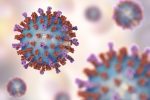Moderna COVID-19 Booster Likely Triggers Acquired Angioedema
86-year-old man thought to have had previous attacks, report notes
Written by |

A booster dose of Moderna’s COVID-19 vaccine is suspected of having caused acute attacks of acquired angioedema in an 86-year-old man, a case study reported.
Its scientists stressed the importance of carefully examining patients set to undergo such vaccinations and considering rarer symptoms, noting this patient reported unusual upper-limb swelling in the weeks before his booster.
“To the best of our knowledge, this is the first report describing the occurrence of AAE [acquired angioedema] after administration of the Moderna vaccination,” they added.
The study, “Acquired angioedema acute attack after administration of the moderna COVID 19 (mRNA-1273) vaccine,” was published in the journal Archivos de Bronconeumología.
Acquired angioedema is an immune system condition characterized by swelling that can occur anywhere, but mainly affects the lips and the skin around the eyes. This type of angioedema can be caused either by self-reactive antibodies that target and destroy a protein called C1-inhibitor (C1-INH), or by other disorders that result in the excessive consumption of the protein.
Repeat upper-limb swelling reported before COVID-19 booster vaccine
Of note, C1-INH is a protein that regulates the activity of other proteins involved in blood clotting and inflammation. In its absence, levels of a pro-inflammatory molecule called bradykinin can rise excessively, causing fluid to leak from blood vessels into nearby tissues, ultimately leading to swelling.
An acquired angioedema diagnosis is based on the presence of very low levels of C1-INH and usually lower amounts of complement factor 4 (C4), another protein that normally helps trigger an immune response against potential threats. The disease usually affects people over age 40 with no family history of angioedema.
A team of researchers in Italy described the case of an 86-year-old man who started to experience swelling in his face, lips, mouth, and neck 72 hours after receiving a booster dose of the Moderna COVID-19 vaccine.
Previously, he had received three doses of the Pfizer-BioNTech COVID-19 vaccine. He had a normal physical exam, showing no symptoms of allergic reactions, such as hives (urticaria).
In the two months before being hospitalized due to the booster reaction, however, the man reported repeat episodes of acute swelling in the upper limbs that lasted three to five days.
He was treated at the hospital with corticosteroids, antihistamines (anti-allergy medications), and epinephrine due to symptom worsening and difficulty breathing. They failed to ease his symptoms.
A bronchoscopy — a procedure that allows clinicians to directly examine the lungs’ airways — was performed and the patient was soon sedated and given urgent intubation to help with his breathing.
As swelling in his throat persisted, he underwent a tracheostomy — a surgical procedure to make an opening in the front of the throat so a tube can be inserted into the windpipe to provide an alternative airway for breathing.
Blood tests revealed low levels of C1-INH and C4, as well as the presence of an abnormal monoclonal protein, also called an M protein, indicating he has a blood condition called monoclonal gammopathy of undetermined significance.
“In the case described, we believe that AAE was secondary to a hematological [blood] disease,” the researchers wrote.
The man was given tranexamic acid — a medicine to control bleeding — at a daily dose of 1,500 mg.
“It is most likely that the vaccine triggered an acute event in a patient who already had clinical manifestations of AAE,” the researchers wrote.
“Physicians examining patients who are to undergo SARS Cov-2 vaccinations should also take into account these less common symptoms and refer patients for further investigation in order to make a correct diagnosis,” they added.



